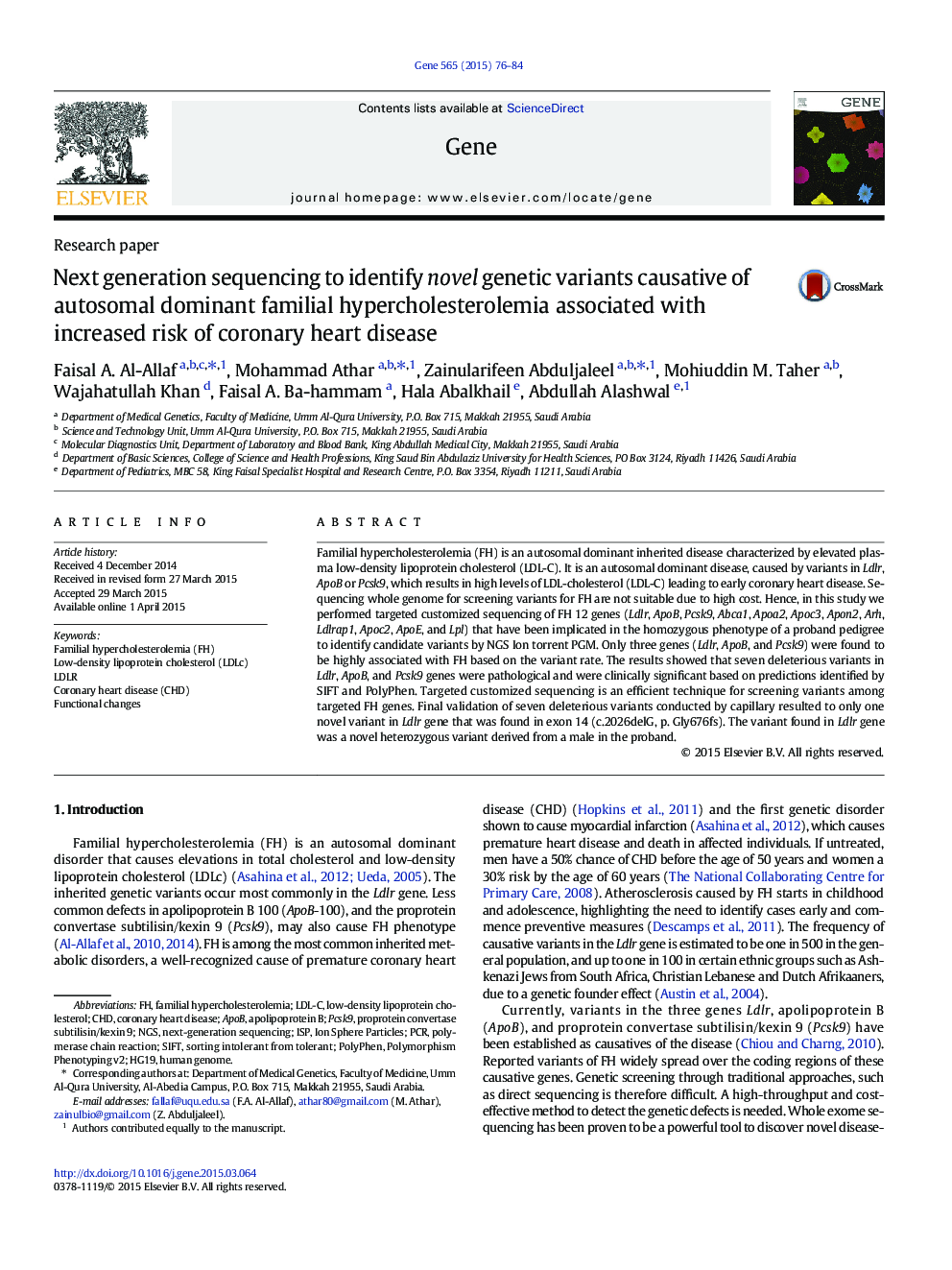| کد مقاله | کد نشریه | سال انتشار | مقاله انگلیسی | نسخه تمام متن |
|---|---|---|---|---|
| 2815695 | 1159887 | 2015 | 9 صفحه PDF | دانلود رایگان |
• FH associated 12 gene variants have been identified using NGS Ion torrent PGM.
• FH variants in Ldlr, ApoB and Pcsk9 genes resulted in high levels of LDL-C.
• Three genes (Ldlr, ApoB, and Pcsk9) were found to be highly associated with FH.
• Deleterious seven variants were pathologically and were clinically significant.
• Deleterious seven variants conducted by capillary showed one variant novel in the Ldlr gene.
Familial hypercholesterolemia (FH) is an autosomal dominant inherited disease characterized by elevated plasma low-density lipoprotein cholesterol (LDL-C). It is an autosomal dominant disease, caused by variants in Ldlr, ApoB or Pcsk9, which results in high levels of LDL-cholesterol (LDL-C) leading to early coronary heart disease. Sequencing whole genome for screening variants for FH are not suitable due to high cost. Hence, in this study we performed targeted customized sequencing of FH 12 genes (Ldlr, ApoB, Pcsk9, Abca1, Apoa2, Apoc3, Apon2, Arh, Ldlrap1, Apoc2, ApoE, and Lpl) that have been implicated in the homozygous phenotype of a proband pedigree to identify candidate variants by NGS Ion torrent PGM. Only three genes (Ldlr, ApoB, and Pcsk9) were found to be highly associated with FH based on the variant rate. The results showed that seven deleterious variants in Ldlr, ApoB, and Pcsk9 genes were pathological and were clinically significant based on predictions identified by SIFT and PolyPhen. Targeted customized sequencing is an efficient technique for screening variants among targeted FH genes. Final validation of seven deleterious variants conducted by capillary resulted to only one novel variant in Ldlr gene that was found in exon 14 (c.2026delG, p. Gly676fs). The variant found in Ldlr gene was a novel heterozygous variant derived from a male in the proband.
Journal: Gene - Volume 565, Issue 1, 1 July 2015, Pages 76–84
